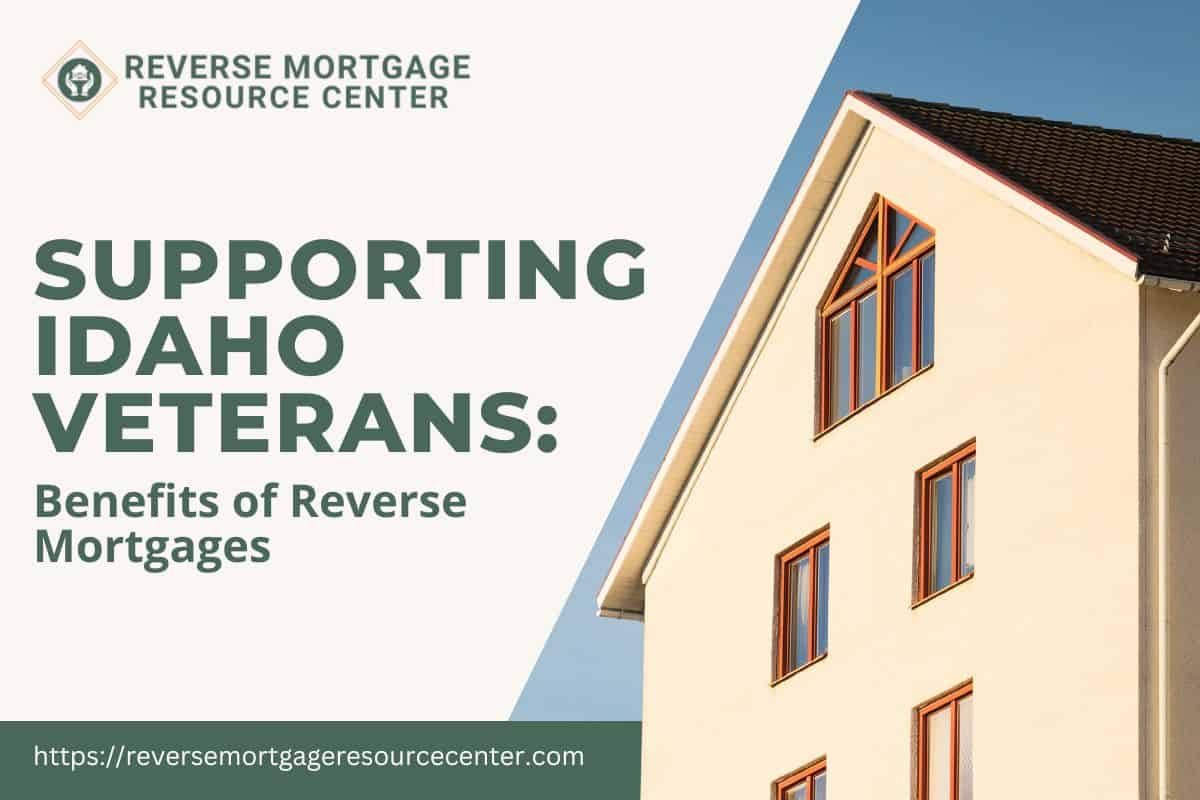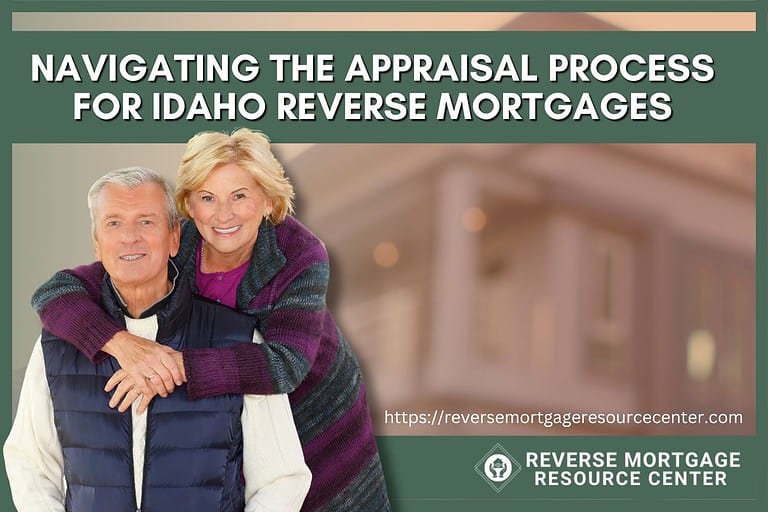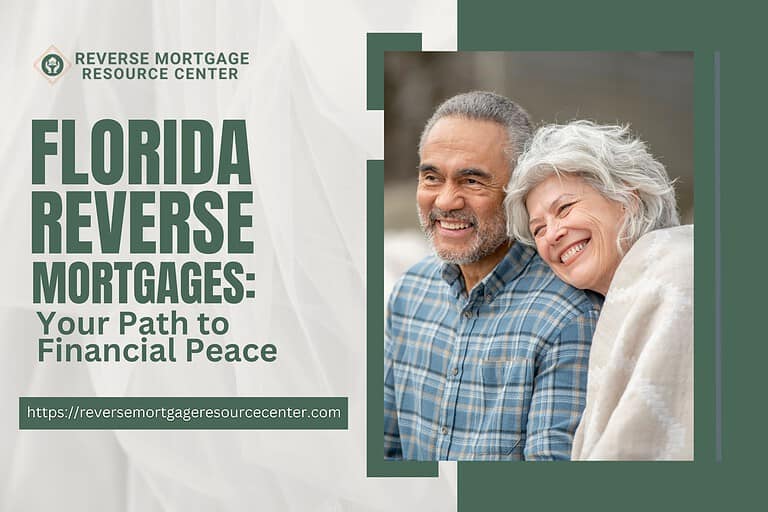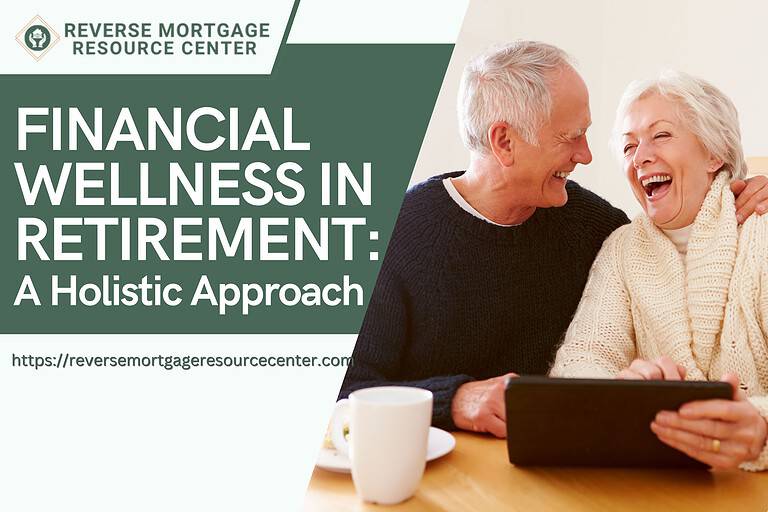Supporting Idaho Veterans: Benefits of Reverse Mortgages
Idaho, the Gem State, is known for its stunning landscapes, thriving communities, and a strong sense of patriotism. Veterans have always played a significant role in the state’s fabric, and supporting them is a fundamental duty. One way to assist Idaho veterans is by helping them explore the benefits of reverse mortgages. In this article, we will delve into reverse mortgages, why they can be especially advantageous for veterans, and how they can offer financial stability and peace of mind to those who have served our country.
Understanding Reverse Mortgages
A reverse mortgage is a financial tool that allows homeowners, aged 62 or older, to convert a portion of their home’s equity into tax-free funds without selling their property, giving up ownership, or taking on monthly mortgage payments. Unlike a traditional forward mortgage, where homeowners make monthly payments to a lender, with a reverse mortgage, the lender disburses funds to the homeowner, often referred to as the “borrower.”
The three main types of reverse mortgages are Home Equity Conversion Mortgages (HECMs), proprietary reverse mortgages, and single-purpose reverse mortgages. HECMs are the most common type and are insured by the Federal Housing Administration (FHA), making them the most heavily regulated and widely available.
Benefits of Reverse Mortgages for Veterans
Financial Flexibility
Reverse mortgages provide veterans with financial flexibility, which can be especially valuable during retirement. Many veterans rely on fixed retirement incomes, and a reverse mortgage can supplement these funds, giving them greater financial stability. The borrower can choose how to receive the funds, whether as a lump sum, a line of credit, monthly payments, or a combination thereof.
No Monthly Mortgage Payments
One of the most attractive features of a reverse mortgage is that there are no monthly mortgage payments. This can be a significant relief for veterans living on a fixed income, as they won’t have to budget for mortgage payments, allowing them to allocate their funds more effectively.
Maintain Homeownership
Veterans have a strong attachment to their homes, and a reverse mortgage allows them to stay in their homes while accessing the equity they’ve built over the years. The loan becomes due when the last borrower permanently leaves the home, but until then, they can continue living there.
Supplement Retirement Income
Retirement income is often not sufficient to maintain a comfortable lifestyle. A reverse mortgage can be a lifeline for veterans who need additional funds to cover healthcare costs, home repairs, or simply enjoy their retirement to the fullest.
No Repayment Until the Home is Sold
The loan becomes due when the last borrower permanently leaves the home or fails to meet their loan obligations. At this point, the home is typically sold to repay the loan. Veterans or their heirs are not personally responsible for the loan amount exceeding the home’s value.
Loan Proceeds Are Tax-Free
The funds received from a reverse mortgage are tax-free, which is a significant advantage. This ensures that veterans can use the money as they see fit without worrying about increasing their tax liability.
How Reverse Mortgages Work
To better understand how reverse mortgages work, let’s break down the key elements:
Eligibility
To be eligible for a reverse mortgage, the borrower must:
- Be 62 years of age or older.
- Own the property or have a low remaining mortgage balance.
- Live in the home as their primary residence.
- Complete a counseling session with a HUD-approved counselor.
Loan Amount
The loan amount a veteran can receive depends on factors such as their age, the home’s value, and the interest rate. The older the borrower and the more equity available in the home, the larger the loan amount.
Disbursement Options
Reverse mortgage proceeds can be disbursed in several ways:
- Lump Sum: A one-time, upfront payment.
- Line of Credit: Borrowers can withdraw funds up to the approved limit as needed.
- Monthly Disbursements: Regular monthly disbursements to the borrower.
Interest and Fees
Interest accrues on the outstanding loan balance, and fees, including mortgage insurance premiums and origination fees, are associated with reverse mortgages. These costs are typically added to the loan balance and paid when the loan becomes due and payable.
Loan Repayment
The loan becomes due and payable when the last borrower permanently leaves the home, whether through sale, relocation, or passing away. The heirs or the estate typically sell the home to repay the loan. If the loan balance exceeds the home’s value, the FHA insurance covers the difference, ensuring that veterans or their heirs are not personally liable for the shortfall.
Special Considerations for Veterans
Veterans can benefit from unique advantages when considering a reverse mortgage:
VA Home Loan Guaranty Program
Veterans using their VA home loan entitlements to purchase a home can still access a reverse mortgage. The VA Home Loan Guaranty Program allows veterans to retain home ownership while obtaining a reverse mortgage.
Health and Long-Term Care Expenses
As veterans age, they may face increased healthcare and long-term care costs. Reverse mortgage funds can be used to cover these expenses, ensuring that veterans receive the care and support they need.
Surviving Spouses
Reverse mortgages also offer protections for surviving spouses. If a veteran takes out a reverse mortgage, and the spouse is not on the loan, the surviving spouse can remain in the home without having to repay the loan as long as they meet certain conditions.
Risks and Considerations
While reverse mortgages offer numerous benefits, veterans must be aware of potential risks and considerations:
Home Equity Reduction
As veterans access the equity in their homes through a reverse mortgage, it will reduce the future equity of the home, which can impact their heirs’ inheritance.
Interest and Fees
The accrual of interest and fees on the loan can result in a higher loan balance over time. Veterans should carefully consider the long-term financial implications.
Impact on Means-Tested Benefits
The funds from a reverse mortgage can impact means-tested benefits, such as Supplemental Security Income (SSI) and Medicaid. Veterans should consult with financial advisors to understand these potential effects.
REVERSE MORTGAGE RESOURCE CENTER ~LIVE LIFE ON YOUR TERMS~
Our Lending Team has been serving our clients since 2004. We are passionate about serving our clients with integrity to help them achieve their financial goals.







